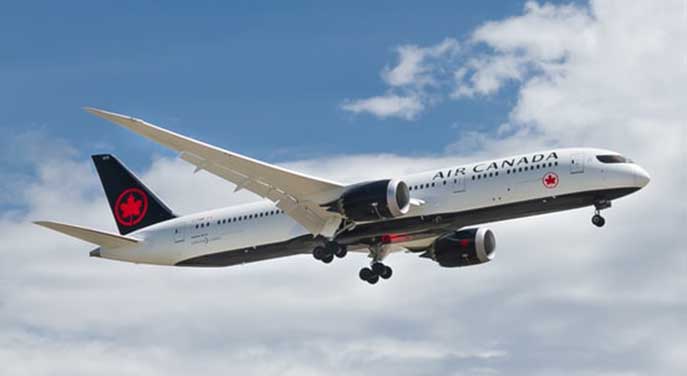 In early April, the government of Canada announced it would support Air Canada through the rest of the lockdown-induced decline in air travel, with loans and, in a return to its previous status as a stratospheric ward of the state, $500 million in equity capital.
In early April, the government of Canada announced it would support Air Canada through the rest of the lockdown-induced decline in air travel, with loans and, in a return to its previous status as a stratospheric ward of the state, $500 million in equity capital.
It’s understandable that the government would want some chance of an upward revaluation of its investment once the pandemic panic ends and semi-normal air travel resumes.
But it’s an open question whether the government should expose itself to business risk and revert to being a holder of shares in commercial enterprises.
This may also indicate that Ottawa will do something similar with Air Canada’s competitors, including WestJet, Porter, Flair and Chorus. That presumably means yet more millions of dollars committed to an industry that’s volatile and erratic in profitability and financial viability at the best of times – which these are emphatically not.
The lockdowns and travel bans are a government-caused calamity for the industry, which should, morally, be addressed by the government that initiated them.
However, there are other means to do so, including paying for laid-off employees, paying the interest on loans for airplanes, and paying the landing and other fees that airports demand whether or not flights are arriving, leaving or empty. The government could also offer advance tax losses or refunds on corporate losses.
Another alternative could be to let Air Canada declare bankruptcy. Creditors could decide whether to liquidate the company or recapitalize it, along with some restructuring and cost-slashing. Since the federal government needs to treat the rest of the domestic airline industry fairly vis-à-vis Air Canada, there will likely be more millions, perhaps billions, of dollars flung into the ether, hoping that domestic air travel as it was in 2019 can revive intact.
Such a revival may be a desperate dream.
Corporate travel, conferences and convention travel may not recover to previous levels, as managers realize that internet teleconferencing can usually suffice, is much cheaper and, theoretically, less time-consuming.
Leisure travel may not recover quickly, as pandemic restriction and wariness of travellers to lingering disease threats put a damper on demand. A strong return of international travel is unlikely in the near term as well.
So, the government could be stuck with this dubious and speculative investment and others that may soon be forthcoming for quite some time.
While the circumstances of the Trans Mountain pipeline investment are different, the essence is the same. The government created a problem, causing financial uncertainty and investor concern, and then papered over it with hundreds of millions of dollars; in the case of Trans Mountain, several billion. The government had a dysfunctional and distrusted environmental and social license review process, lasting for years, with no successful conclusion in sight, causing project owner Kinder Morgan to bail out.
Governments have made building new infrastructure and other major capital projects so difficult and expensive that Ottawa created the Infrastructure Bank to invest in things that the private sector or investment management funds found unattractive without a government guarantee. This bank has also been problematic, with only $4 billion in investments made since it was created in 2017.
Governments need to be more rational and perceptive when they develop policies and processes. Such things can hurt industries and sectors in the economy and society, which can be costly to clean up.
Making new Crown corporations or investment portfolios out of industries stricken by ill-informed government edicts isn’t the best or safest strategy to deal with such policy errors.
Ian Madsen is a senior policy analyst with the Frontier Centre for Public Policy.
Ian is one of our Thought Leaders. For interview requests, click here.
The views, opinions and positions expressed by columnists and contributors are the authors’ alone. They do not inherently or expressly reflect the views, opinions and/or positions of our publication.
© Troy Media
Troy Media is an editorial content provider to media outlets and its own hosted community news outlets across Canada.

